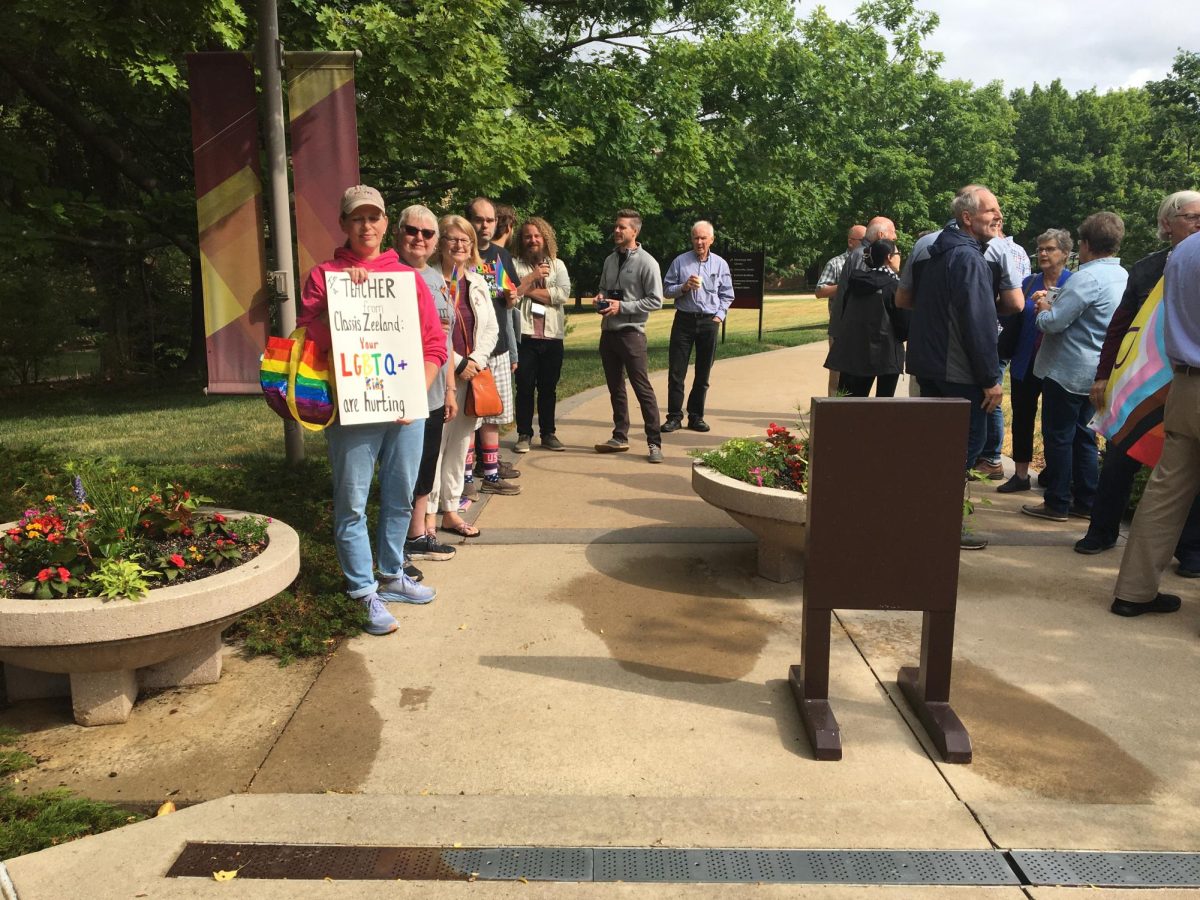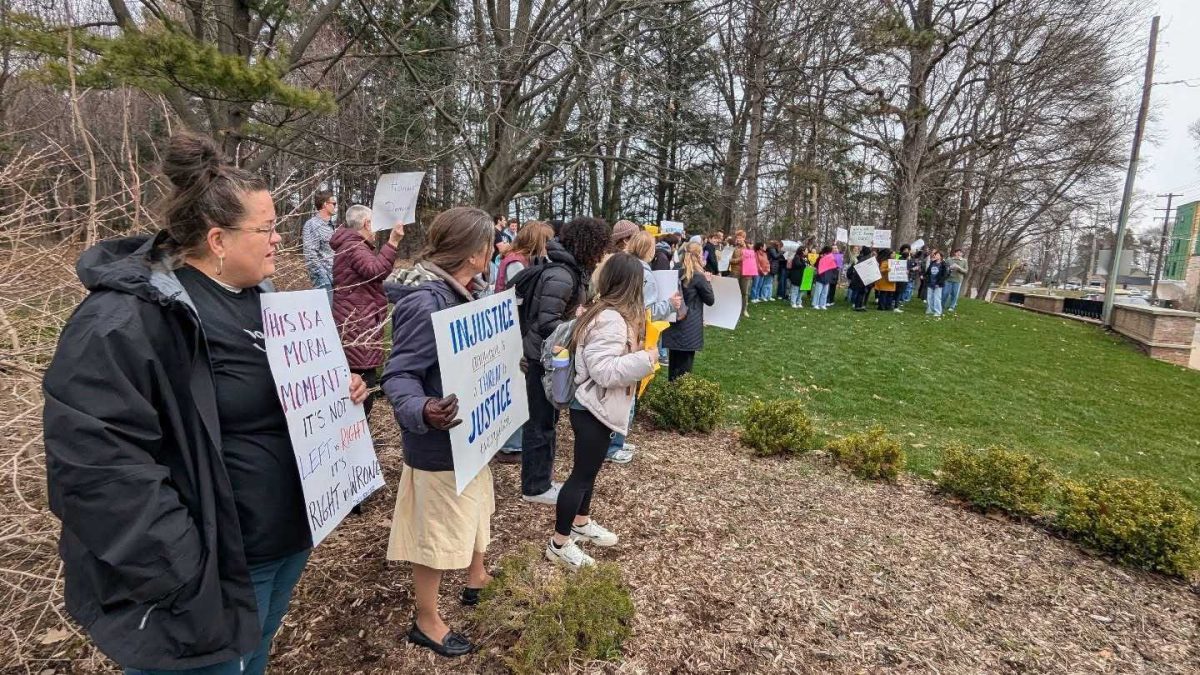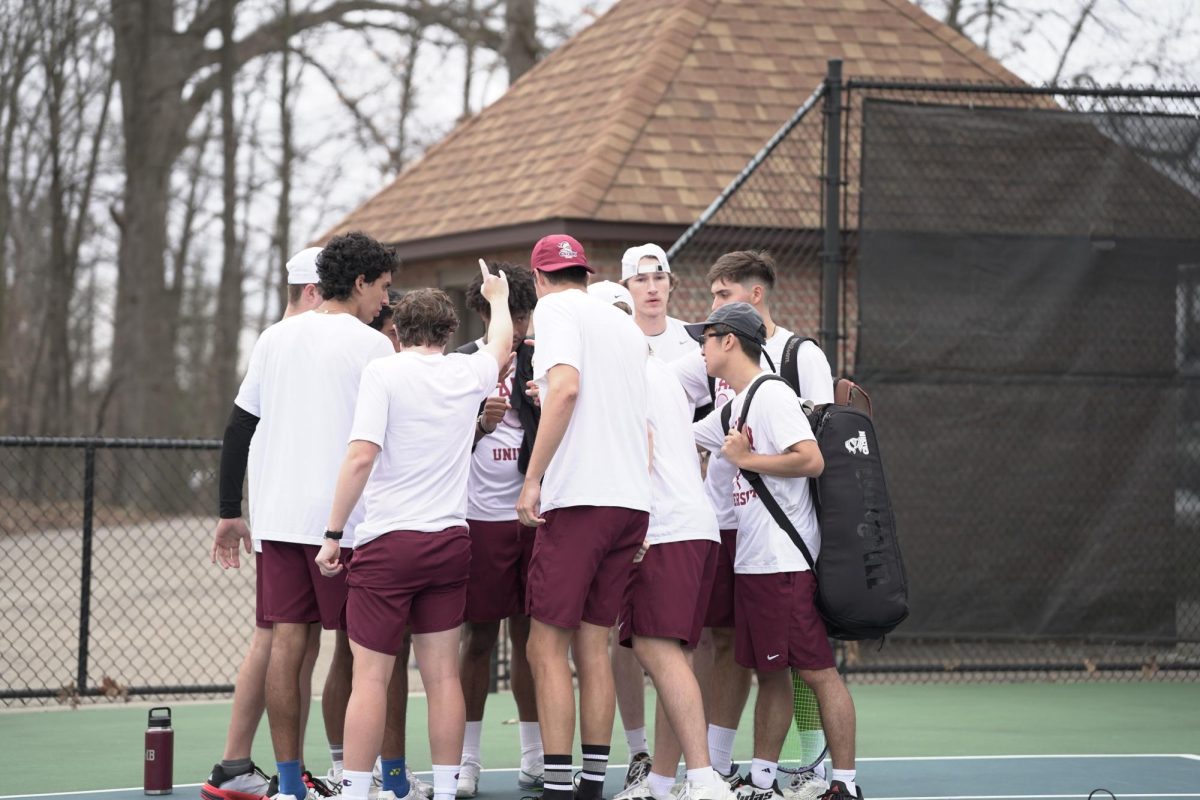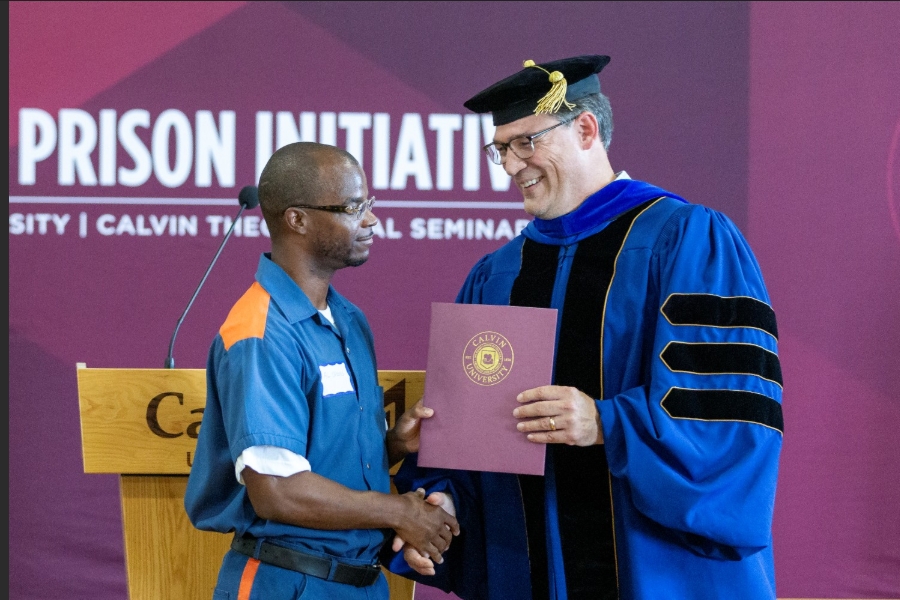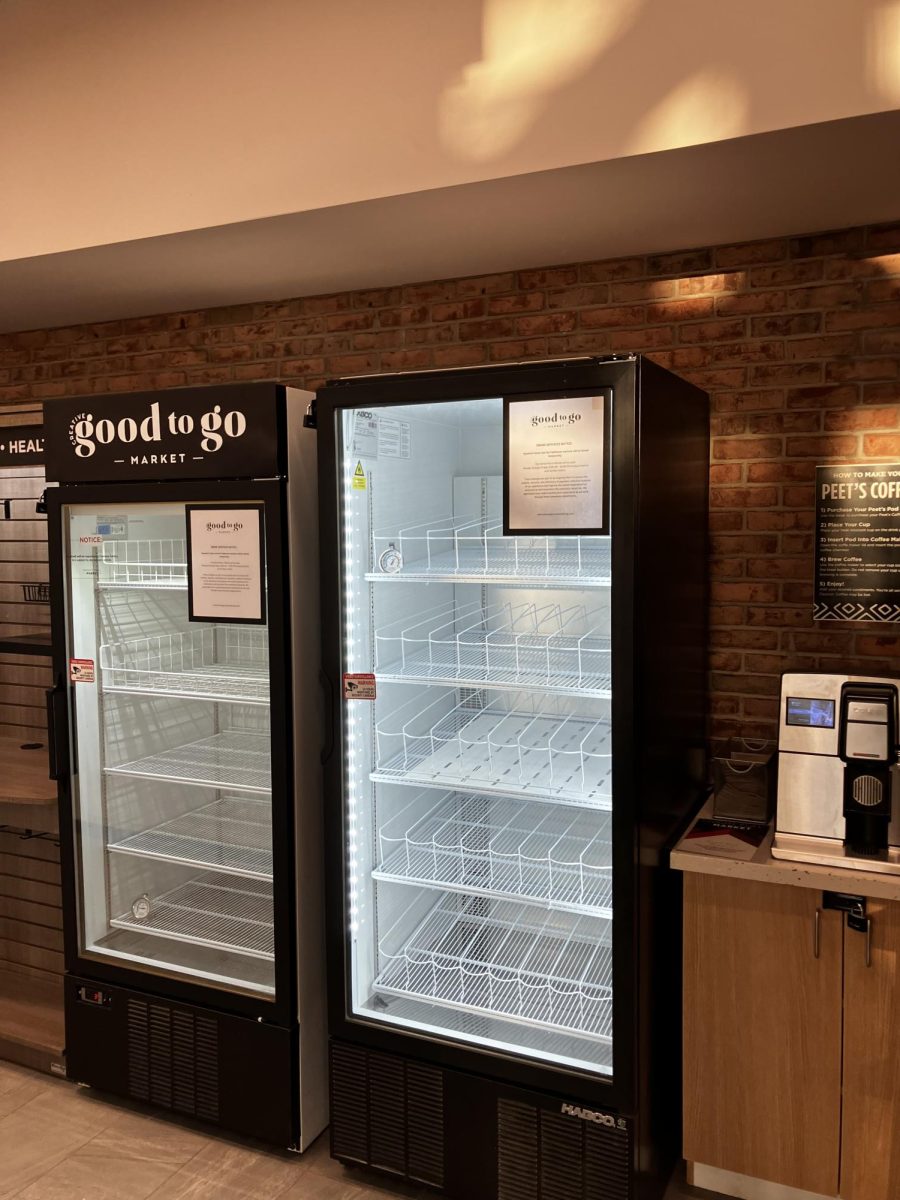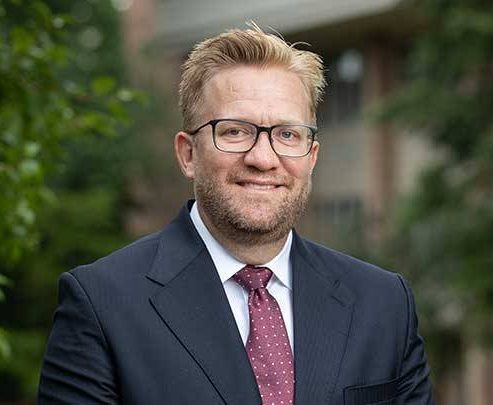
The aftermath of former President Wiebe Boer’s resignation has been messy. A total of five official statements or documents combined across both parties have been released over the span of about two months, leaving students confused, conflicted and unsure about where truth actually lies, due in part to the way information was revealed to them.
For faculty, the common denominator throughout the situation has been a feeling of deep sadness. Some reserved judgment and declined talking to Chimes, while others are still concerned about a perceived lack of due process that may be exacerbated due to continued issues of trust in the board of trustees and members of the administration.
The sequence of statements
On Feb. 26, the board of trustees sent an email to the Calvin community announcing a leadership transition, in which they described that Wiebe Boer resigned due to allegations about “unwelcome communications” between the former president and a non-faculty non-student member of the Calvin community.
Two days after the email was sent, someone spray painted the words “justice for victims of Wiebe’s sexual harassment” on the science building, even as the email specified that the allegations did not include “sexually explicit communication or physical contact.”
The wording of that initial email came across to junior Koby VanderWoude as “very open-ended…you could take it a lot of different ways,” VanderWoude said. “However, I think that did actually hurt the image of both Calvin and Wiebe. I feel like it made him look bad. It made Calvin look bad.”
Several students and faculty members agreed with VanderWoude’s sentiment. Concerns about the process by which Boer’s resignation was handled led to a second statement from the board, released to Chimes on March 28, announcing that the board internally reviewed their process, unanimously confirmed their decision and offered further details about the timeline and procedure of events. Through his lawyers, Boer gave Chimes a short statement alleging his unfair treatment by the board that same day.
Two weeks later, on April 12, Boer and his wife Joanna filed a lawsuit containing explosive allegations against the board and Calvin administrators, culminating in three counts against the university: defamation, breach of contract and civil rights violations under the Elliott-Larsen Civil Rights Act.
After threats of violence against one of the administrators named in the lawsuit were posted on social media, Interim President Greg Elzinga released a video statement addressing the threats saying, “This must stop.”
On the morning of April 15, the board issued a statement via email to faculty refuting a number of the allegations in the lawsuit. The board gave further context to the relationship between Provost Noah Toly and one of the search committee members and denied that the provost orchestrated the inclusion of his cousin on the presidential search committee. They also provided further details about the quantity and quality of text messages exchanged between Boer and the woman who brought the complaint, further details about the agreement regarding use of DeWit Manor and denied Boer’s representation of the communications he had with the board of trustees regarding his resignation.
The board ultimately stated that “The disinformation campaign is also serving to distract and deflect from Dr. Boer’s admitted conduct, which is at the center of this dispute,” and that the board would like to let further situations play out in court.
This statement was not sent to students until later that night.
Two days later on April 17, Boer issued a personal statement in response to the board’s April 15 statement, doubling down on his framing of the text messages as between “friendly acquaintances,” citing his personal style of leadership and emphasizing his continued love for Calvin. In the personal statement, Boer wrote that the board’s desire to finish this in court is what he has “been asking for since this whole painful situation began –– a fair and unbiased review of the merits of the case, the reasonableness of Calvin’s response and the fairness of the Board’s subsequent settlement terms.”
Students search for truth
Student Body President Bear de Boo highlighted the fact that Boer was involved on campus and cited it as a reason some students were significantly affected by the resignation and subsequent events. “I think that shows something good about Boer’s presidency, which was that he was very personable and he met with a lot of students,” de Boo said.
One of those students who met with Boer personally was Sayo Ayeni, a Nigerian freshman studying computer science. The resignation was “a huge hit for me because he was a major reason as to why I came here.” Ayeni said, “You know, he’s also Nigerian, so I met him a couple times before I came here…The whole thing just came as a huge shock to me.”
Chantale Van Tassel, a linguistics and writing major who grew up primarily in Hong Kong, also expressed that the international community deeply felt news of the resignation and subsequent events. “I think a lot of people felt seen, or that they had a personal relationship with the president,” she said, and therefore, “I think it’s hard for some people because on one hand, it’s like, ‘Oh, I saw him as this really great guy.’ But then our institution is saying something completely different, and I don’t know who to actually believe.”
The conflicting accounts provided by Boer’s lawsuit and the board’s account left some students with a distrust of the board and administration while others have appreciated and trusted the board’s account of the situation.
Regardless, the prevailing sentiment among the student body seems to be, generally, that both Boer and the board have handled the resignation poorly, and truth may be found somewhere between the two accounts.
Senior sociology major Emma Hacker told Chimes, “Now that we have the two extremes, somewhere in the middle is a reality that makes sense,” while VanderWoude said, “I think both sides are telling the truth, but neither side is telling the entire truth.”
Junior political science major Ethan VanOrman said he is personally not a “both sides-ism person…I think one side can be more right than another side,” however, “The truth will come out in the future, we don’t know right now. And it certainly doesn’t lie within the lawsuit or within the board statement.”
Not all students are invested in the situation, though. Freshman Seth Vedra said he’s not personally impacted. “It’s disappointing to see, and it’s definitely not great for the reputation of the university, but on a personal standpoint, I’m just going to continue going to classes and working towards a degree.”
Some people are paying attention to developments not because of their personal connection with the president, but simply because of the dramatic nature of the situation. “I think the general majority of people, like, they care, but they really don’t care. We’re just invested — it sounds bad — invested in the tea,” senior pre-physical therapy major Micah Reyes said.
Transparency, patience and grace necessary moving forward
Concerns about process are still percolating among some faculty, according to chemistry professor Kumar Sinniah, and said concerns may be further impacted by “a low-trust environment between the faculty and some of our administrators,” he told Chimes in an email, so it is “not surprising that faculty are skeptical of the information provided to them by administrators.”
Members of cabinet referred Chimes to the board when asked for comment about general campus sentiment regarding Boer’s lawsuit and the statements from the board.
Further transparency seems to be the general consensus from students about what would make it possible for campus to move forward.
Ayeni said he would be interested in bringing Boer back to campus, while Van Tassel said, “I think we’ll move in a good direction if people continue to keep us in the know and be transparent about stuff that’s going on.”
Regardless, Reyes was aware of the “blurred” and “thin” line between what students have a right to know and what they do not. “I do believe that we do have some sort of right to be given this information about certain details, but I also know that a lot of it — we don’t have a right to it,” Reyes said.
Provost Noah Toly expressed a desire for Calvin to continue to live into the fruits of the spirit. Love, joy, peace, patience, gentleness and self control “are actually tested and forged when we face the greatest stress and when we face the greatest temptations to respond in other ways with hatred, discord, dissension and infection,” he said.
“I have tried to adopt a posture of patience,” de Boo told Chimes, so as he and the rest of the community wait for more information regarding the situation, “We just need to keep doing what we’re good at, and we need to keep marketing that while also taking the time to mourn the loss that’s happened.”
As Calvin prepares for the next phase in the institution’s history, de Boo said we should realize “that Calvin has been around for 148 years — we’re moving towards 150 — and there is also still a lot to celebrate.”
Chimes’ Nolan Cowan contributed to this report.





